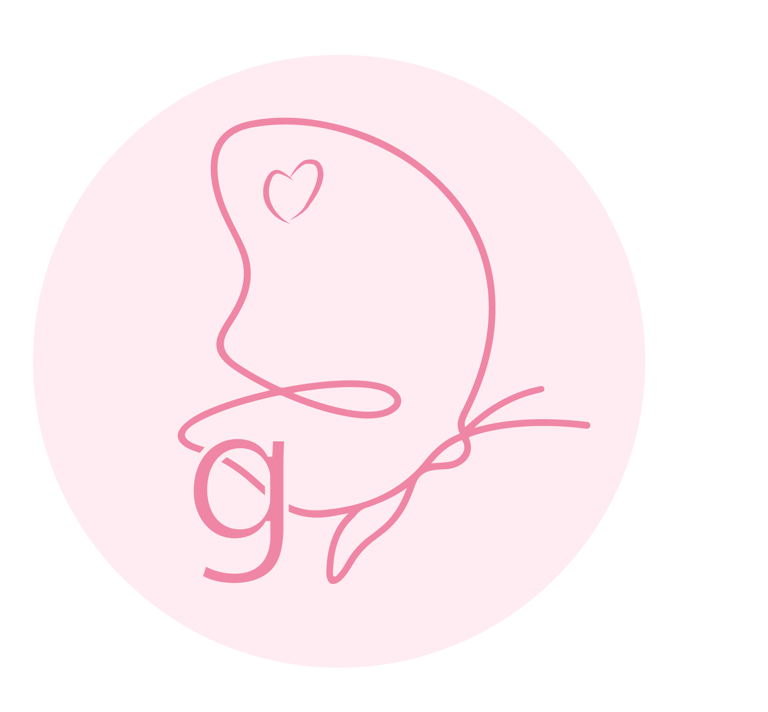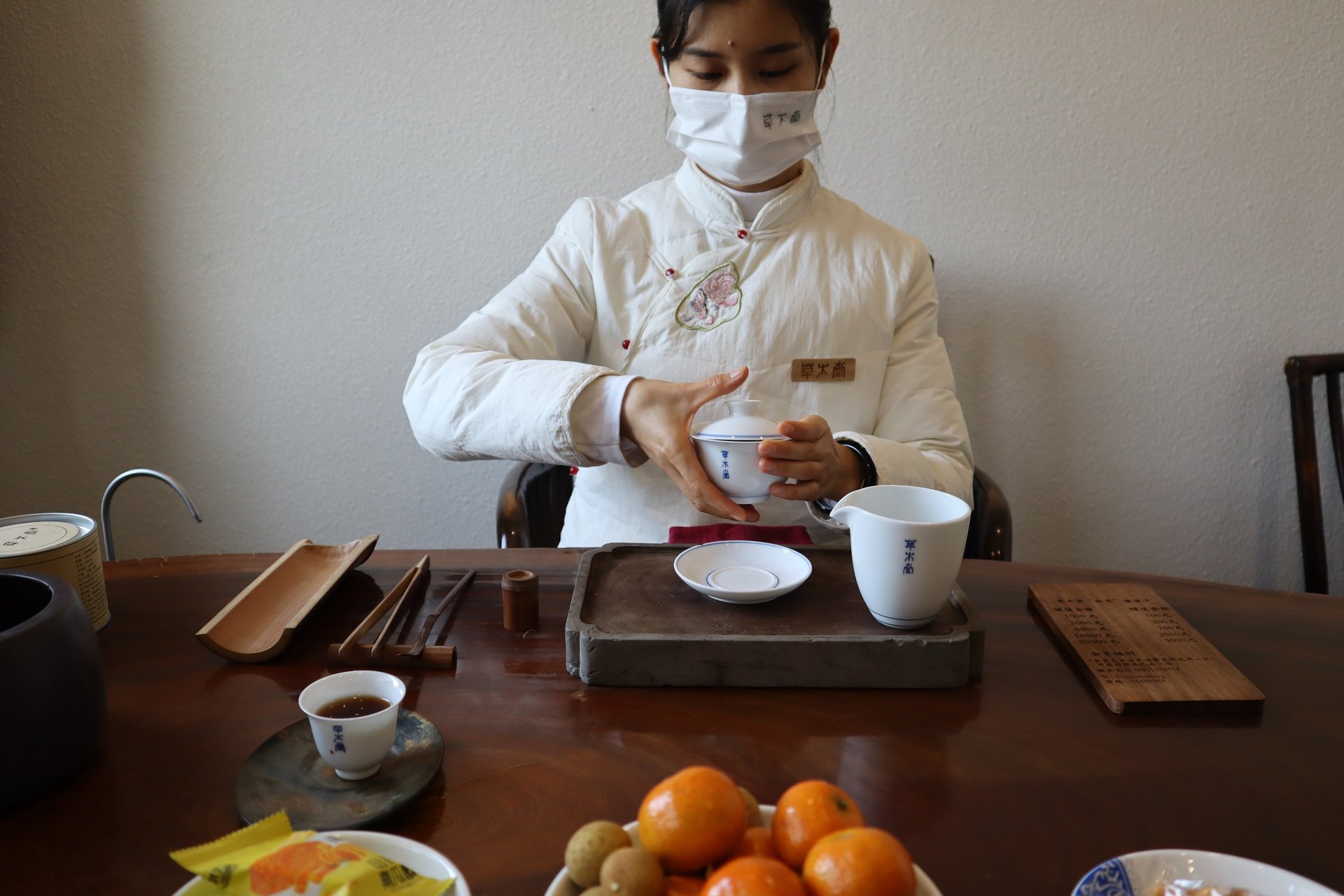
spillin the tea with my kung fu moves
"hey would you like a cup of tea?". its Chinese "kung fu tea"! shifu guanie is going all bruce lee here in TaiCang, China.
TRAVEL DIARIES
insert "duang" sound effect whilst I spill this tea with my sick kung fu moves*.
hello China!
Our Covid world - such uncertain times. Finally after three long years, I am back here in Taicang 太仓, China -- a cozy town in the Suzhou 苏州 region, nonetheless my dad's home-town and where my roots anchor.
This journey "back home" was arduous, least to say. Nabu 外婆 (my grandmother from my mum's side in Shanghainese dialect 上海话) and I flew all the way from Melbourne, quarantined for 8 days in Xiamen 厦门. After 10 long days, we are now finally here in Taicang. Forever adapting to new places, people and procedures, with much incertitude, we were fish out of water. Like Nemos, the only thing that kept us fighting was our anticipation, the hopes of uniting with dear faces, seeing old favourite places, tasting memories' flavours.
Yet our envisaged triumphant Napoleon style return never happened. In lieu of it was a continuation of apprehension, of lostness. guanie has now come to the epiphany that she is a now absolute alien. Biding Taicang farewell three years ago, so much has changed in this awkward amount of time. New sky scrappers, stores with names unheard of, a foreign neighbourhood. Technology! So much of it. Everybody is so accustomed to it, hugging their phones as if babies. I wonder: will I ever habituate to this 1.5 speed life style?
Instead of siting around and complaining non-stop, I decided to actively do something about it. Guanie wanted to find that tingly feeling she misses so much.
What feeling is this exactly? It is hard to explain. It's that lingering of the heart when you can smell the budding osmanthus flowers, hear the small flowing rivers under dainty bridges connecting a house to another, whilst sipping some tea. The harmony of folk instruments - Pipa 琵琶 and Erhu 二胡, silk Qipao dresses 旗袍 and Hanfu 汉服. It's Chinese traditional culture. guanie is on a quest to search for the old, traditional ways of life whilst here in China. She plans to share her adventures and new discoveries via a series of travel articles each talking about one branching topic, an element of traditional Chinese culture.
Let's start with tea. Yes tea. Not that tea we are so familiar with and come across every now and then on social media, but where it all started - China where 茶 Tea is said to have been discovered 4,700 years ago during the Shennong era 神农. China and Tea are practically synonyms. Tea drinking is big here in the Suzhou region 苏州, more so during Covid, which along with budding social media trends and television shows re-popularised the traditional notion of "yang-shen 养身” - word by word rest your body. The well-being trend pushed the price of tea, especially white tea, to a new high.
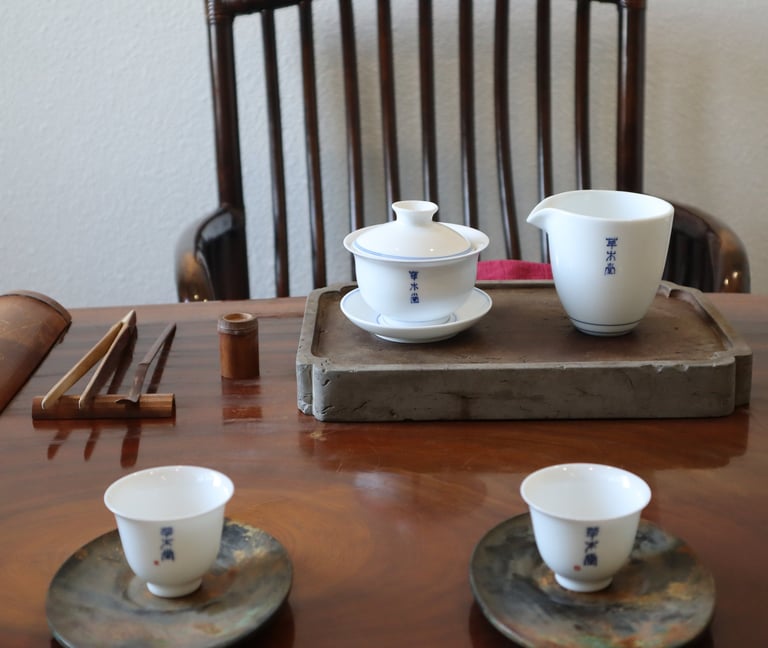

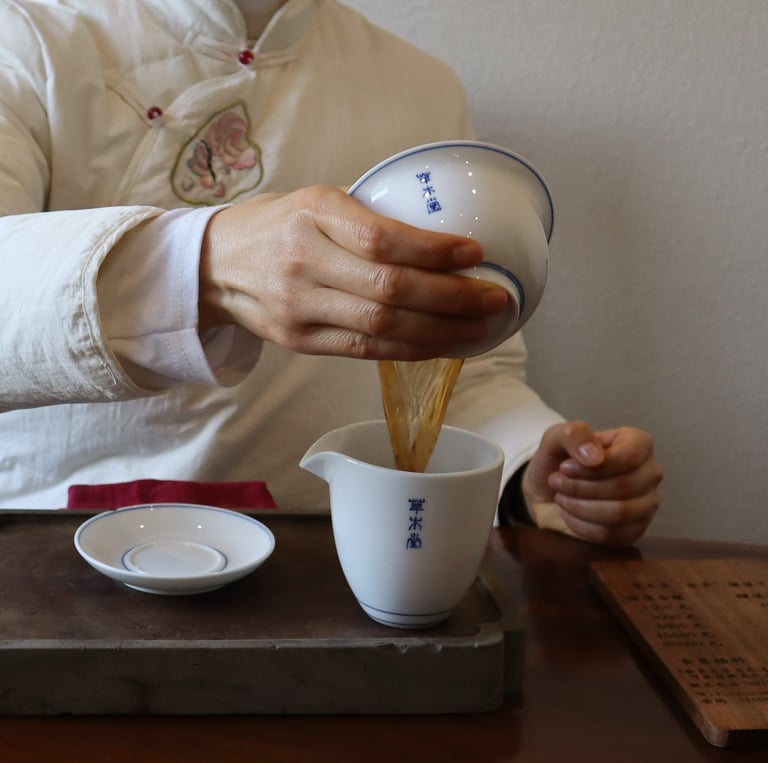

第一站 茶楼 first stop - teahouse:
草木堂 茶楼 Cao Mu Tang Tea House - Hai Yun Ti Rd 53-61 Taicang.
My dad took me here for tea tasting three years ago. The architecture and interior finally sparked the long lost feeling of reminiscence. A classic Suzhou oriental black sloped roof, white paved walls 白墙黛瓦, smoked sculpted wooden windows. It is the same warm rooms with touches of green miniature Penjing trees 盆景. Guanie's heard that the owner has gone to great lengths to create and preserve an authentic and calm space for tea appreciation.
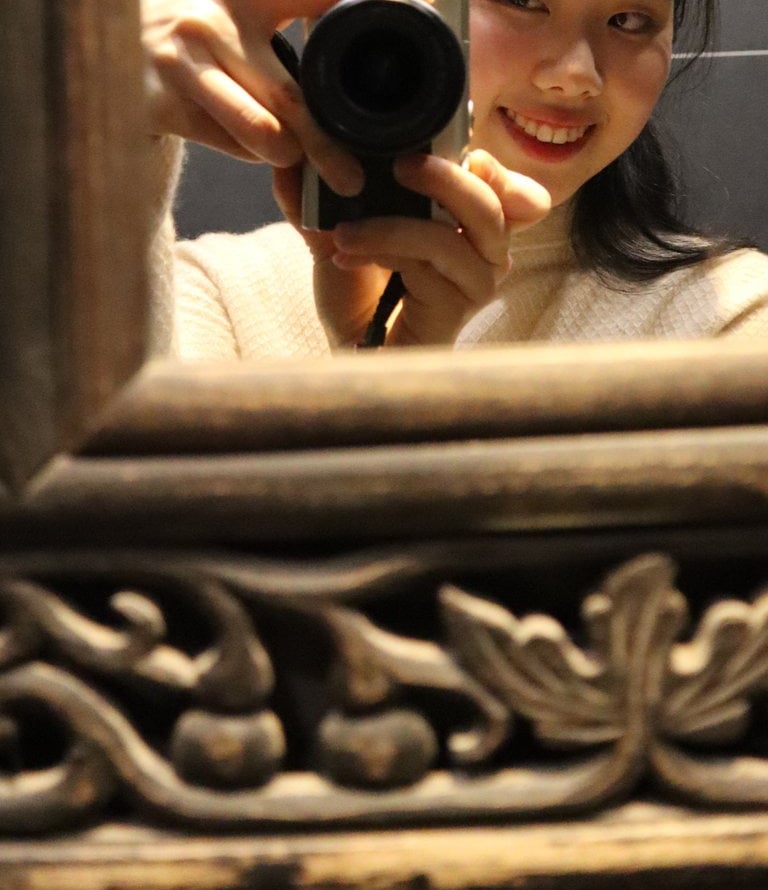

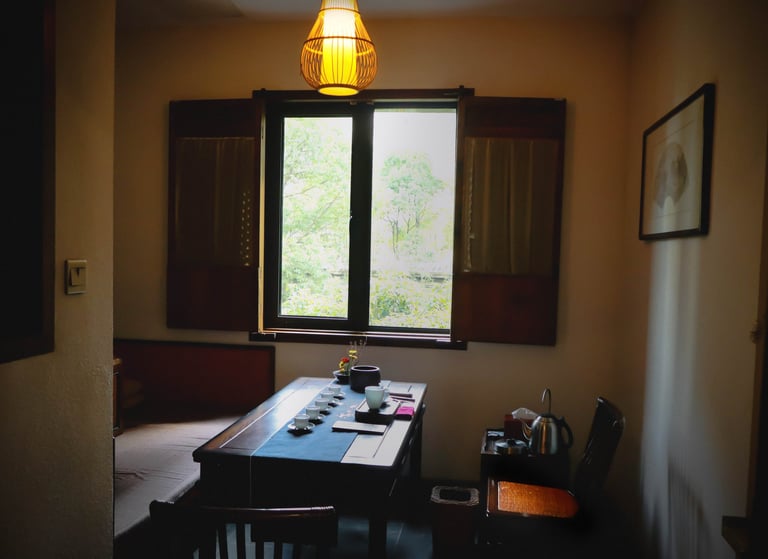

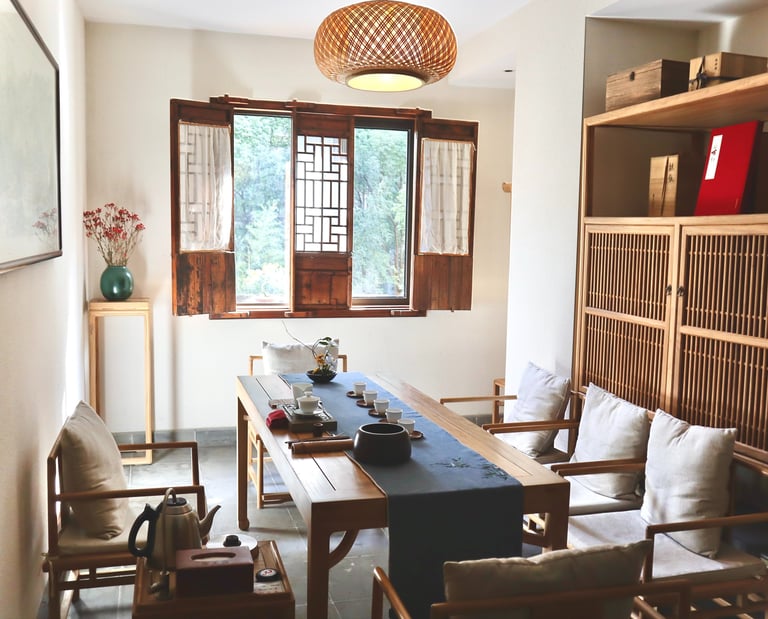

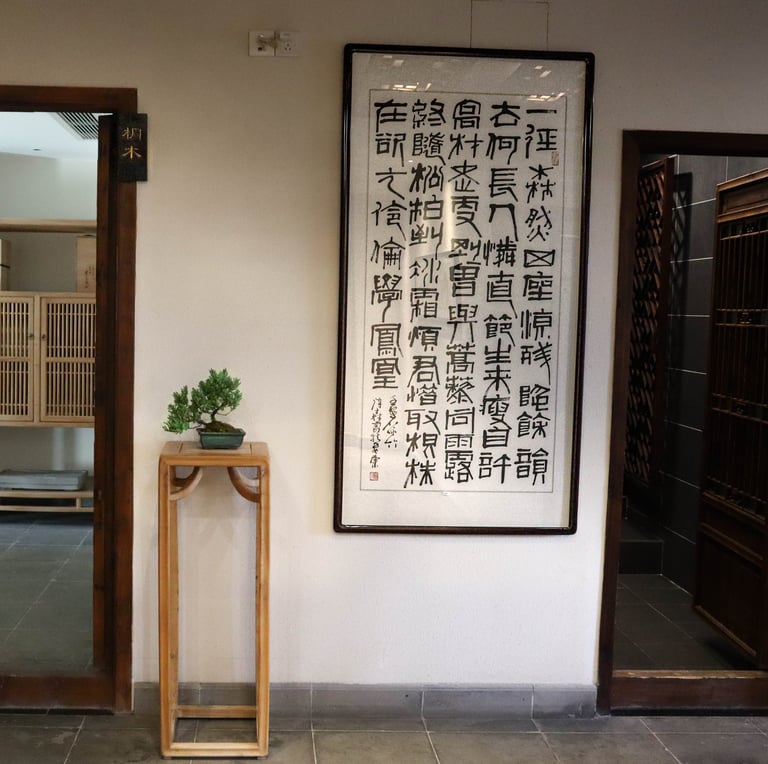

茶 the tea:
Out of a whole assortment of different teas, we chose to try a type of Ripe Pu-erh Tea 熟普洱- the tea house's own Xiao Pu Tuo 小普陀. Produced in Yunnan province 云南, Xiao Pu Tuo, along with other choices of Pu-erh teas is a type of compressed tea. Compact solid, the tea is easy to transport. This quality made it especially convenient for nomads in the past. According to the tea master, fascinatingly all Pu-er teas are great for weight loss due to its gut cleansing properties.
Fragrant woody and earthy notes dancing on the tip of the tongue and a rewarding mellow after taste known as 回甘 (hui gan) - returning sweetness is what makes ripe Pu-erh one of my favourite teas. Not that I am a connoisseur of tea, at least not that of the leafy type (wink*). Guanie recommends trying Pu-erh tea if you, like Guanie, have a palate for bitter beverages.
Heads up, some of my friends with sweeter teeth did say that Pu-erh tastes like dirt water. I don't agree with them. However, if you have never tried drinking Chinese tea, a newbie to this popular pastime, Guanie recommends easing in with a caffeinated green 绿茶 or decaffeinated black tea 红茶.
Nonetheless, flavour is a very personal experience. Taste is subjective. However, if you're really perplexed as to where to start and would like a more specific recommendation from guanie. The Chinese black tea is the ancestor of English Breakfast; guanie thinks that it is a safe category to start.
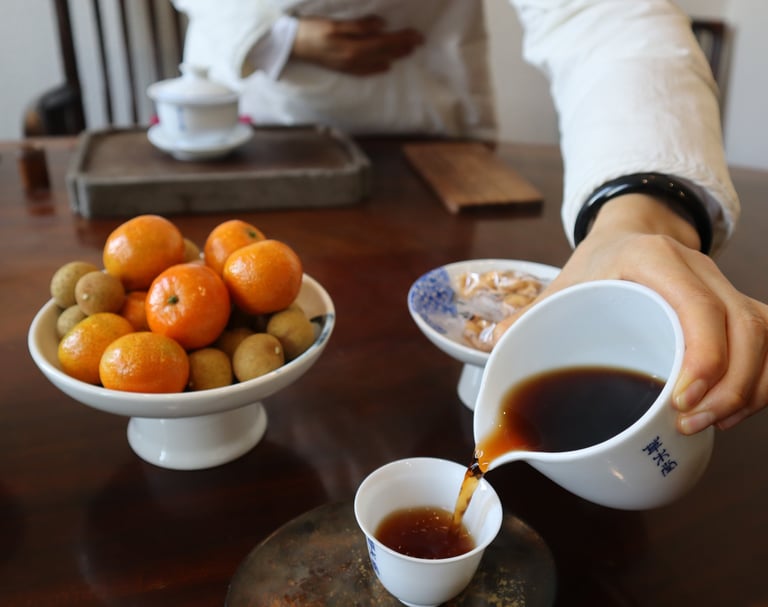

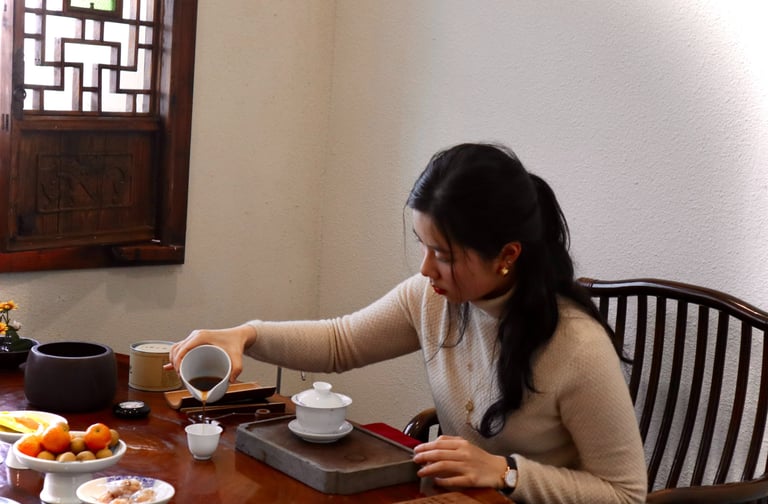

用功夫倒出来的茶 served Kung Fu style:
Now for the exciting part - Kung Fu Tea 功夫茶. I know, It gets better! Yes, the pu-erh tea was served by a Tea Master 茶艺师, to us, Kung Fu style.
This method of serving tea is not native to the Suzhou area. Rather, the art ,Kung Fu tea, comes from the very south of China - Chaozhou 潮州 in the Canton region 广东. In Chaozhou, tea is regarded as the hospitality etiquette. Prevailing in the Song dynasty 宋朝, with a thousand years of history, it is one of the most representative and common method to serve Chinese tea known across the world, hence is crowned as the "Chinese tea ceremony".
Traditionally, the Kung Fu tea ceremony is the hobby of the fancy fancy. Using Guanie's words, those with the metallic ka-ching ka-ching and the shiny bling bling. However, as for now, with the popularisation of traditional culture on social media, Kung Fu tea has become more and more accessible to the general public! Almost anyone, anywhere in China, can find a teahouse 茶楼 which serves Chaozhou Kung Fu tea.
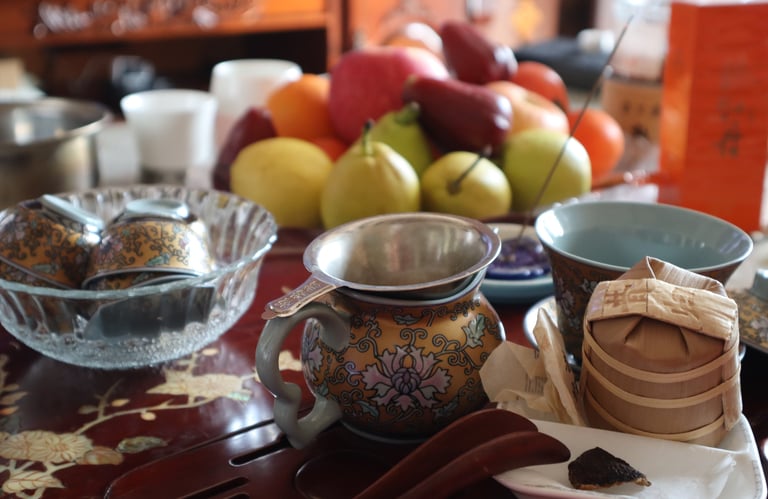

在家练习 practising at home:
Guanie's tea tasting experience at Cao Mu Tang tea house was extraordinary. So much so that guanie has now taken up Kung Fu tea as her hobby. Sitting at home, cozy in front of the television. Trying to replicate a miniature Xanadu, guanie even sourced some Chinese Amergris incense. Watching the smoke ballroom dance its way up to the roof, pouring tea from a pot to another. Simple. Elegance. With no rush to do this and no rush to get there, played in adagio, life is so much more enjoyable.
Overall:
Tea tasting, especially going tea tasting at a Chinese Tea-house, is definately a guanie recommended cultural and therapeutic, two in one experience. It is such a luxury, especially reflecting upon the whole experience, to be able to relax in such harmony. Enjoying the aged furniture and calligraphy, inhaling the woody santal incense, hearing the whispering of the winter wind and of course sipping silky warm tea. Suddenly, I find myself in an almost fairy land beyond the cloud punching sky scrappers and beeping bustling busy cars. I am in Suzhou. I am in Taicang - a town, a little one, once home to little bridges and turning canals.
Knowing where my family and I come from paints my understanding of who I am and who I would like to be. More specifically, my roots plant inside of me a destiny, a mission to preserve my culture. I know, such a cliché. Nonetheless, I am in no doubt that many of you, my readers, though I currently don't have many, can empathise. Cultural preservation sounds broad, sounds like philosophy - a preach, an overwhelming principle so big that no-one can truly grasp what it means and what it demands. Yet, like Kung fu tea, though there is a whole elegant procedure in pouring one little cup-let (a guanie invented word, do not use in formal speech) of tea, when you slow yourself down, every step is so necessary, the ceremony is so healing. Cultural preservation is no chore at all. In fact, as shown by the trending yang-shen 养身 well-being movement in China, it starts with, and needs to start with you and with me. Try it! Share it! It is as easy as that! This is what guanie strives to achieve with her "travel adventure" journals. A disclaimer before I finish blabbering, everything that guanie has shared is based on her personal experience.
No offence to her but, guanie is more subjective than Wikipedia. So if you want to write an academic essay on Chinese tea tasting, probably don’t quote her. Of course the aim of guanie's choice is to provide guanie a platform for to share her unique thoughts on this and thats and not one for reputable papers. Guanie aspires to be where your interest starts, definitely not where it ends!
And yes, finally, let guanie know if you want her to share what Chinese incense and teas she has been testing by using the "contact guanie" form or emailing guanie directly via jess@guanieschoice.com
xx guanie εїз
